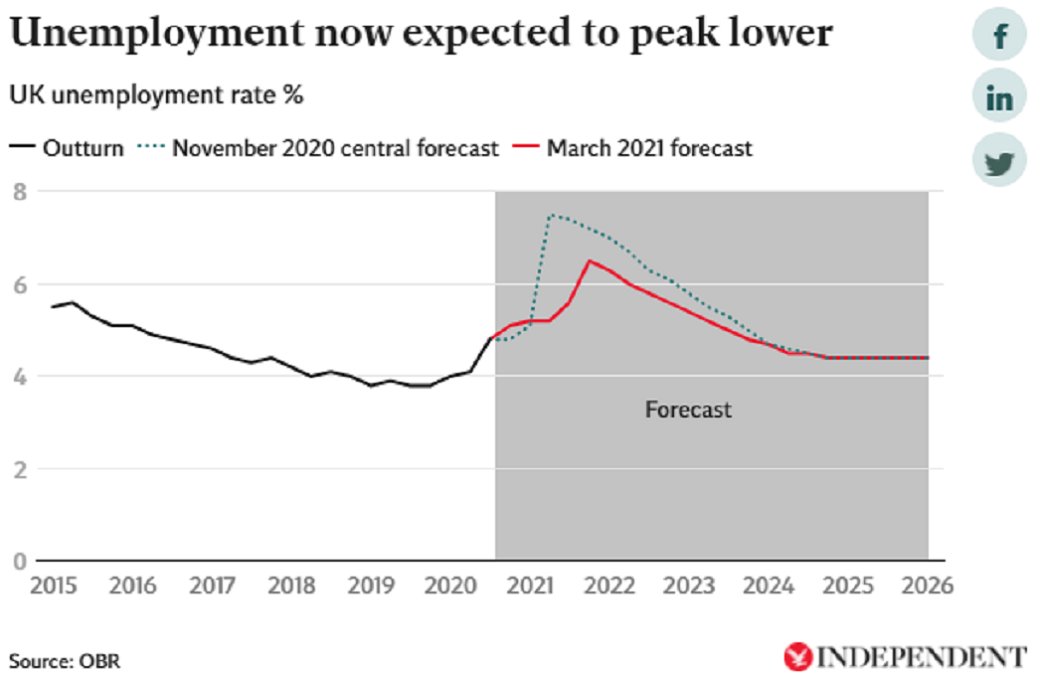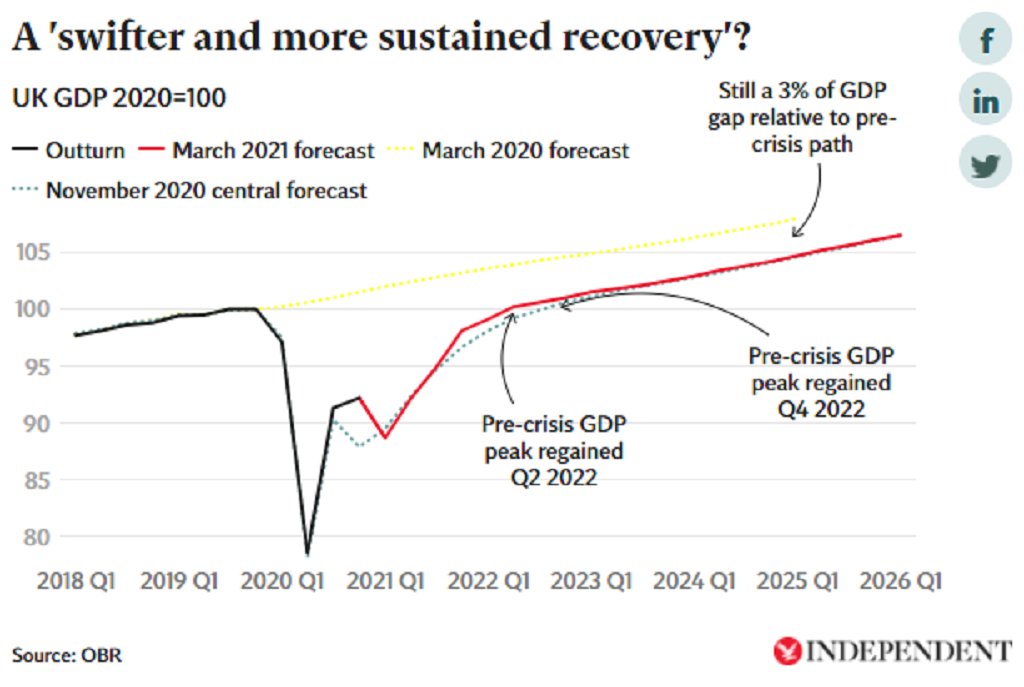
*How* exactly is Rishi Sunak bringing austerity back to public services?
✂️
A thread…🧵1/
✂️
A thread…🧵1/
“There's absolutely no way in which anyone can say that's austerity, we're spending more money on public services than we were," Sunak said last November...2/
news.sky.com/story/covid-19…
news.sky.com/story/covid-19…
But this week a chorus of public finance experts said austerity is indeed returning to the public realm.
So who’s right? And what’s going on?...3/
So who’s right? And what’s going on?...3/
First, we’re talking about one (albeit important) element of public service spending here: day-to-day department spending, known as “RDEL”.
This is the money spent on employing staff, delivering routine services like social care, policing, running courts etc ...4/
This is the money spent on employing staff, delivering routine services like social care, policing, running courts etc ...4/
RDEL *is* rising, as Sunak said in November.
But it’s now not rising as fast as was planned before the pandemic.
He didn’t mention it in his speech, but Sunak’s #budget21 plans included a roughly £4bn/year cut in RDEL starting in 2022-23...5/
But it’s now not rising as fast as was planned before the pandemic.
He didn’t mention it in his speech, but Sunak’s #budget21 plans included a roughly £4bn/year cut in RDEL starting in 2022-23...5/
This followed a £13bn a year reduction in those budgets in last year’s Spending Review.
The implication of all this is that, by 2023-24, these budgets will be some £16bn lower than they were projected to be before the pandemic struck...6/
The implication of all this is that, by 2023-24, these budgets will be some £16bn lower than they were projected to be before the pandemic struck...6/

In the context of total RDEl spending totals of £377bn in that year (up from £321bn in 2019-20) £16bn might not sound a particularly large sum....7/
But large “protected” departments such as health, defence, education have already been awarded multi-year budget rises – so any cuts to the overall spending envelope disproportionately hit unprotected departments such as Justice, the Home Office and local government...8/
@OBR_UK says the reduction in the envelope pencilled in by Sunak this week implies after health, education defence and overseas aid have had their increases, all the other unprotected departments are now facing a 1% *cut* in this autumn's Spending Review for the 2022-23 year...9/ 

And similar pain in future years is implied.
In other words, for *these* public services, austerity will very much be back....10/
In other words, for *these* public services, austerity will very much be back....10/
And bear in mind it was these unprotected departments that suffered the biggest cuts in public spending during the years after 2010.
Departments such as local gov, work & pensions, and transport saw RDEL budgets more than *halved* in real terms...11/
Departments such as local gov, work & pensions, and transport saw RDEL budgets more than *halved* in real terms...11/

So while protected departments’ budgets are set to be 10 per cent higher in real terms by the middle of this decade, the per capita budgets of non-protected departments are set to still be almost a *quarter* below their 2010 levels by 2025 according to @resfoundation...12/ 

This is why @resfoundation says: "For those public services it will feel very much like George Osborne is still the chancellor"...12/
resolutionfoundation.org/app/uploads/20…
resolutionfoundation.org/app/uploads/20…
@TheIFS doubts these will be deliverable given clear *new* demands on health, education, the courts, social care etc in the wake of the pandemic.
& it's certainly possible the spending envelope gets widened again by the Chancellor in the Autumn....13/ ifs.org.uk/budget-2021
& it's certainly possible the spending envelope gets widened again by the Chancellor in the Autumn....13/ ifs.org.uk/budget-2021
But this, at least, is how public austerity *theoretically* returns under Sunak in the coming years.
And, don't forget, *some* cuts, like the public sector pay freeze (a real terms cut of course) for 2021/22 are *already* a reality...14/
And, don't forget, *some* cuts, like the public sector pay freeze (a real terms cut of course) for 2021/22 are *already* a reality...14/
• • •
Missing some Tweet in this thread? You can try to
force a refresh








